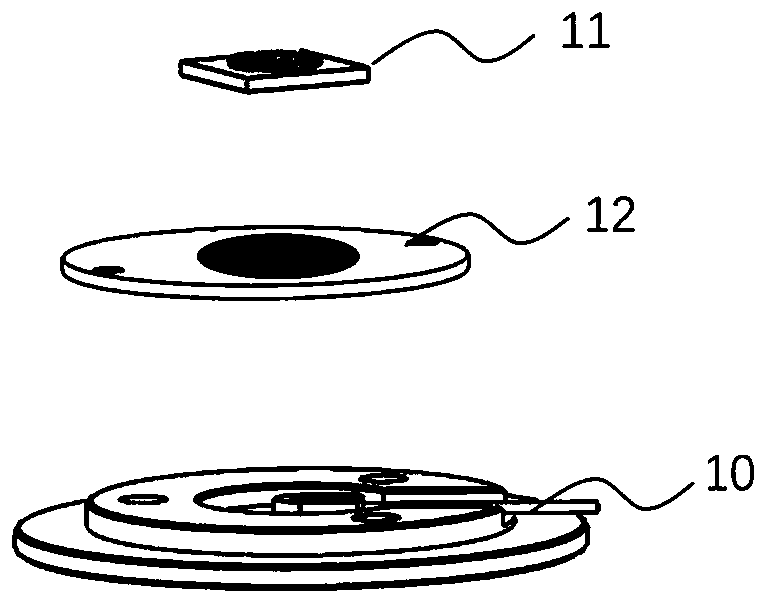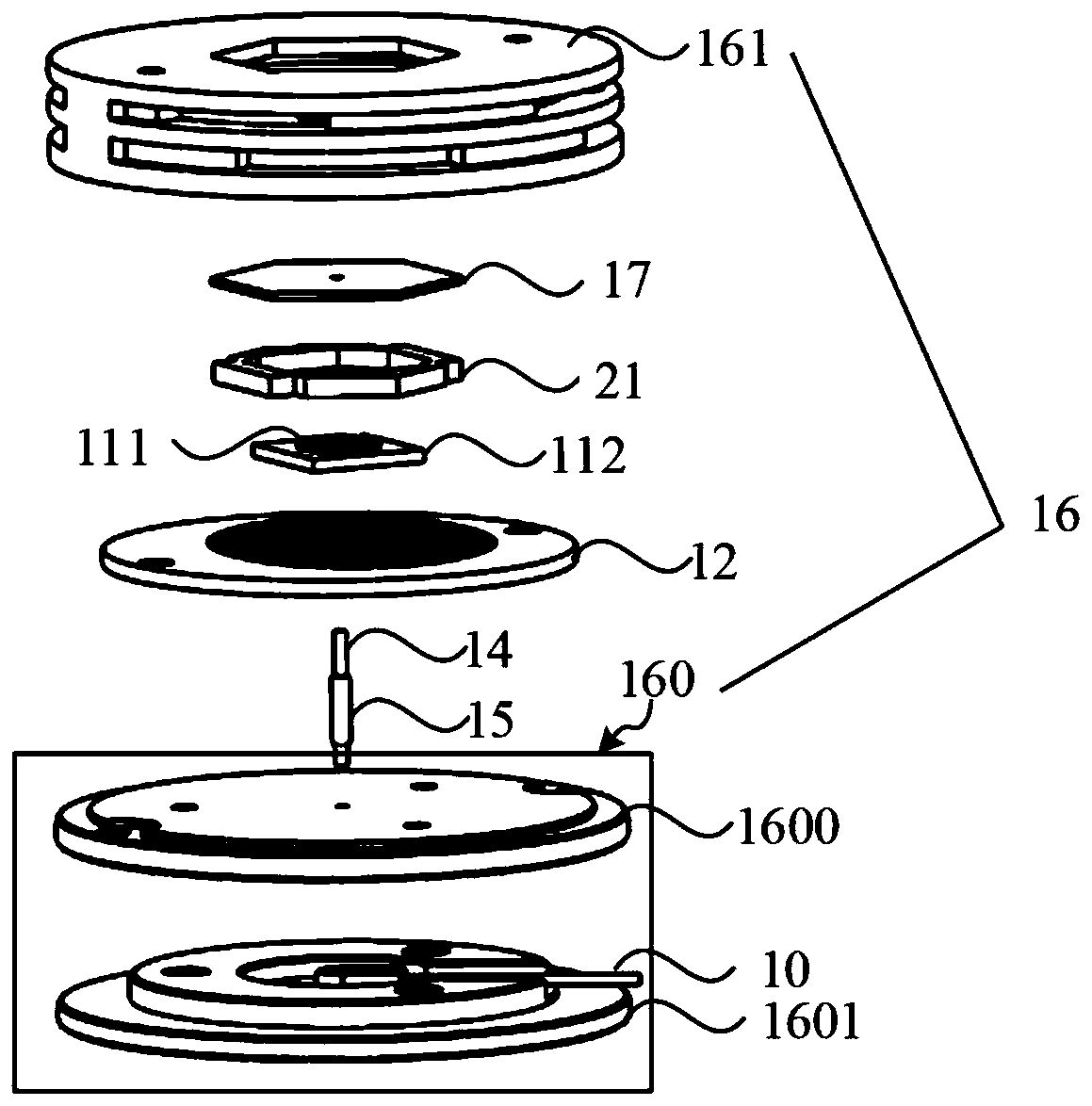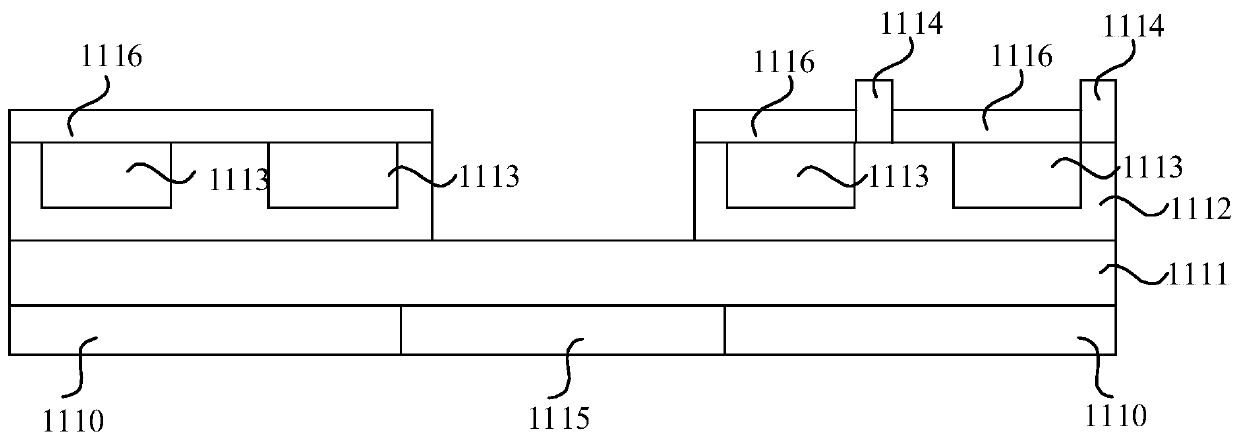Tissue component non-invasive detection device and system, and wearable equipment
A detection device and wearable device technology, applied in the field of spectral detection, can solve problems such as low signal-to-noise ratio, low light receiving efficiency, and large changes in detection conditions
- Summary
- Abstract
- Description
- Claims
- Application Information
AI Technical Summary
Problems solved by technology
Method used
Image
Examples
Embodiment Construction
[0090] The present invention will be further described in detail below in conjunction with the accompanying drawings and embodiments. It can be understood that the specific embodiments described herein are only used to explain the present invention, but not to limit the present invention, and various features described in the embodiments can be combined to form multiple alternative solutions. In addition, it should be noted that, for the convenience of description, the drawings only show some but not all structures related to the present invention.
[0091] In order to improve the detection accuracy, improvements can be made from the following three aspects: first, to improve the light receiving efficiency; second, to stabilize the detection conditions; third, to eliminate common mode interference information. Among them, for the first aspect, it can be achieved by maximizing the efficiency of receiving homogeneous scattered light. Homogeneous scattered light is diffusely sca...
PUM
| Property | Measurement | Unit |
|---|---|---|
| The inside diameter of | aaaaa | aaaaa |
Abstract
Description
Claims
Application Information
 Login to View More
Login to View More - R&D Engineer
- R&D Manager
- IP Professional
- Industry Leading Data Capabilities
- Powerful AI technology
- Patent DNA Extraction
Browse by: Latest US Patents, China's latest patents, Technical Efficacy Thesaurus, Application Domain, Technology Topic, Popular Technical Reports.
© 2024 PatSnap. All rights reserved.Legal|Privacy policy|Modern Slavery Act Transparency Statement|Sitemap|About US| Contact US: help@patsnap.com










